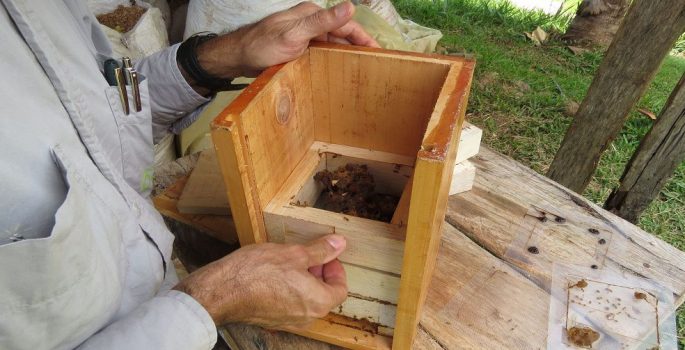Through an alliance between Corpoguajira and Hocol, a knowledge training cycle was carried out, management and production of melipon bees, in which the guardians of the environment and peace of the Montes de Oca Protective Forest Reserve participated.
Through this project, the implementation of ten minor melipona bee hives was achieved, which were delivered to the community as seed capital., together with tool kits for the practice of meliponiculture.
Samuel Lanao Robles, General Manager Corpoguajira, explained that such management, contributes to the strengthening of this activity and sustainable green businesses, “This in addition to representing benefits for the human being, also translates into great advantages for nature, since the pollination process allows forests to continue to exist. For us it is important that people educate themselves on this issue and understand that the conservation of this species and of our strategic ecosystems is essential”.
In addition, indicated that these actions make it possible to promote integral management strategies for meliponas and teach communities that fumigating or burning their nests is incorrect, since they are important for their multiple ecosystem services.
“We emphasize that food crops and agricultural land depend to some extent on the pollination that bees provide, process that allows plants, flowers and many foods reproduce and multiply”.
Finally, the environmental authority specified that melipona bees are social, they have a stunted stinger and mainly inhabit tropical forests. On average, they dwell among 5.000 or more individuals within a colony, they reproduce by means of swarms in defined places and have caste differentiation (reina, workers and drones).
































Leave a reply
I am sorry, you should be connected to post a comment.